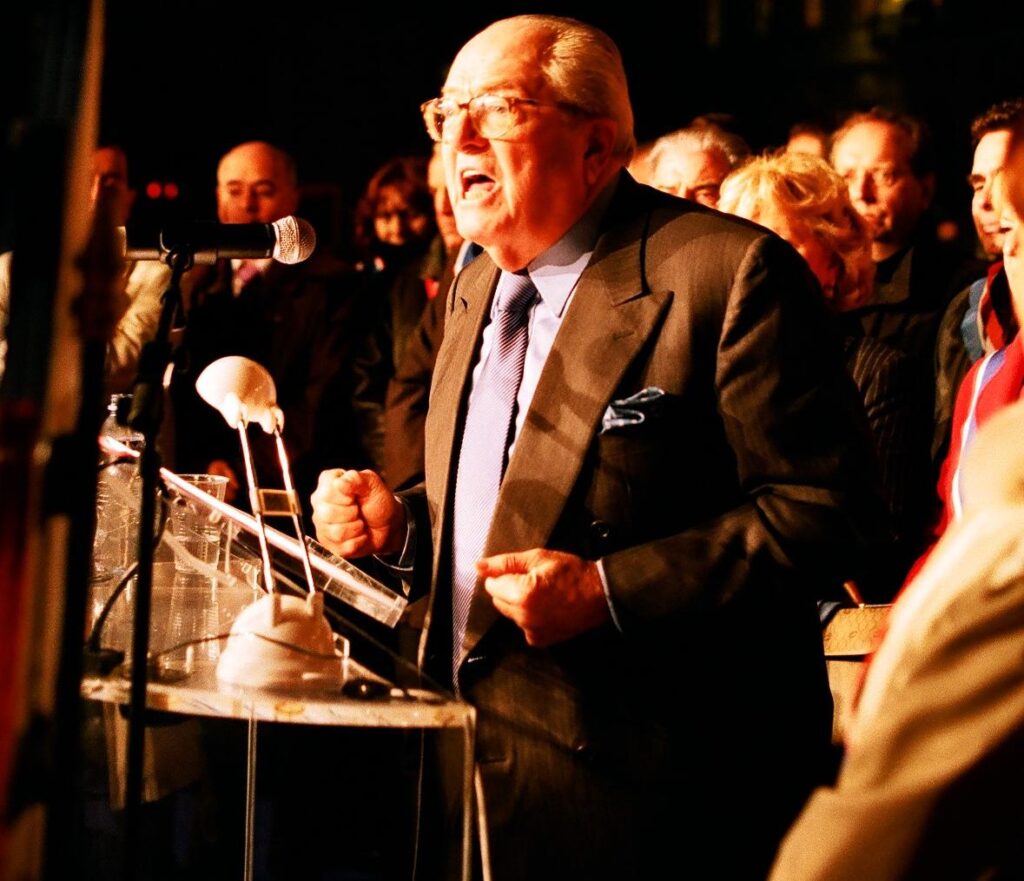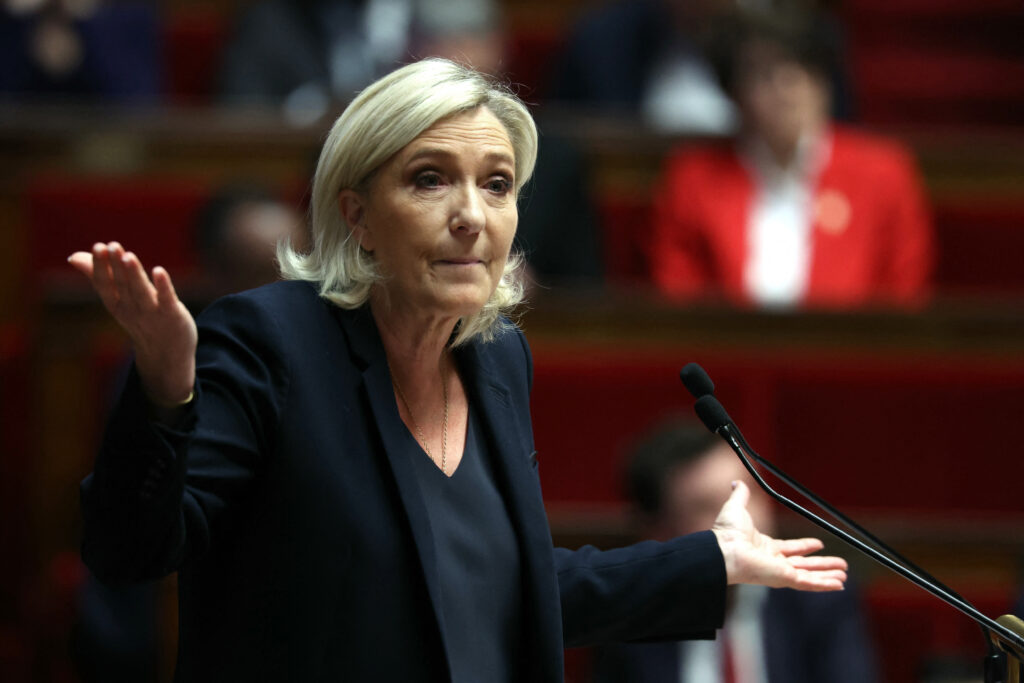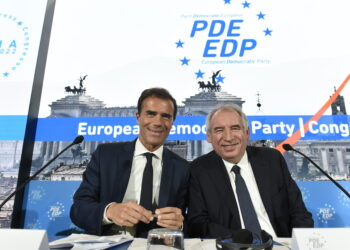Brussels–At the age of 96, Jean-Marie Le Pen, the historic leader of the extreme right-wing transalpine party he helped create in its modern form, died this morning (Jan. 7). Founder of the Front National and later “disowned” politically by his daughter Marine, who had taken over the leadership of the party by renaming it Rassemblement National and embarking on a normalization effort, Le Pen was an extremely controversial figure in the French Cinquième République—as we can see, today, from the reactions to his demise.
Who was Jean-Marie Le Pen
Born in 1928, Jean-Marie Le Pen was one of the most polarising personalities in the political history of modern France. Before entering politics, he had served in the military in the 1950s as a member of the Foreign Legion in Indochina and Algeria, where he was allegedly responsible for acts of torture against a detainee during the bloody anti-colonial war of independence. He had admitted the torture to the press, only to deny it years later in an autobiography.

Leading exponent of the far-right across the Alps, who has personally helped to bring to the centre of political debate, he has expressed throughout his long career (he has been a member of parliament and a member of the European Parliament several times) strong conservative positions, described by opponents as reactionary, xenophobic, and anti-Semitic, among other things. He participated in seven presidential elections as a candidate of the Front National, the eurosceptic and ultranationalist party that he had founded in 1972, coming to the runoff in 2002 against the neo-Gollist Jacques Chirac, an unexpected result that shocked transalpine public opinion.
Some of his most controversial utterances, which have also earned him convictions, concern the Nazi occupation of France, which he described as “not particularly inhumane,” the proposal to isolate AIDS patients and the gas chambers of the death camps, which were downgraded to “a mere detail” in the context of the larger World War II affair.
Distancing from daughter Marine
He repeated this last statement, first made in 1987, in 2015, effectively sanctioning the political inadmissibility of the FN, which conservatives considered approachable until then. According to observers, that was the point of no return that finally sank relations with his daughter Marine, who had succeeded him four years earlier at the helm of the FN—rebranded in 2018 as Rassemblement National (RN)—and proceeded to suspend him from the party.

Jean-Marie’s indefensible comments were damaging to Marine’s attempt at the dédiabolisation of the FN/RN, that process by which the leader of the radical right has sought (and is still seeking) to position the party away from her father’s extremisms and closer to the centre of the political mainstream, showing it as a force capable of assuming governmental responsibilities.
According to local media, the RN House whip and former three-time presidential candidate of the party learned of her father’s death (with whom she had not spoken for some time now) while she was flying to France from the overseas territory of Mayotte, where she had been visiting the people affected by the disastrous cyclone Chido that battered the archipelago last December.
Reactions to death
The news of Le Pen’s father’s passing has burst into the public debate, polarizing it for the umpteenth time. Prime Minister François Bayrou, an exponent of the liberal MoDem party, hailed “a key figure in French politics,” adding in an almost admiring tone that “when we clashed with him, we understood what a fighter he was.” The Elysée Palace has commented on Le Pen’s death, delegating his legacy to the “judgment of History” while expressing the official condolences of the head of state, Emmanuel Macron, to the Le Pen family.

His supporters, or at any rate those on his political side, have defended what they call the late 96-year-old’s “patriotism.” Jordan Bardella, who replaced Marine Le Pen at the helm of the RN in 2022, pointed out that Jean-Marie had “always served France and defended its identity and sovereignty,” while party vice-president Sébastien Chenu called him “an immense patriot, a visionary, and an embodiment of courage.”
For Éric Ciotti, founder of the Union of Right-Wingers for the Republic (UDR) after his expulsion from the Républicains following precisely the electoral alliance with the RN at last summer’s early vote, the late Le Pen “was a complex man, with dark sides but also courage and sincere patriotism.”
Of diametrically opposite tenor are the comments on the other side of the political spectrum. Manon Aubry, head of delegation to the EU Parliament of La France Insoumise (LFI), the radical leftist party led by Jean-Luc Mélenchon, wrote on X that “respect for the dead should not lead to blindness to his career” because “Jean-Marie Le Pen was a known racist and anti-Semite, a worshipper of Pétain (the marshal who headed the collaborationist Vichy regime, ed) and a torturer in Algeria.”
Jean-Marie Le Pen is dead.
He wasn’t just “a figure in French political life”, as François Bayrou put it.
Respect for the deceased should not lead to blindness about one’s journey.
Jean-Marie Le Pen was a notorious racist and anti-Semite, an adorer of…
– Manon Aubry (@ManonAubryFr) January 7, 2025
Also along the same lines, ecologist MP François Ruffin, according to whom “gone is a fascist from another era,” who had founded the FN “with the Waffen SS“, that is, Hitler’s paramilitary troops. “Jean-Marie Le Pen is dead,” he added, “but his racist ideas remain to be fought.”
English version by the Translation Service of Withub






